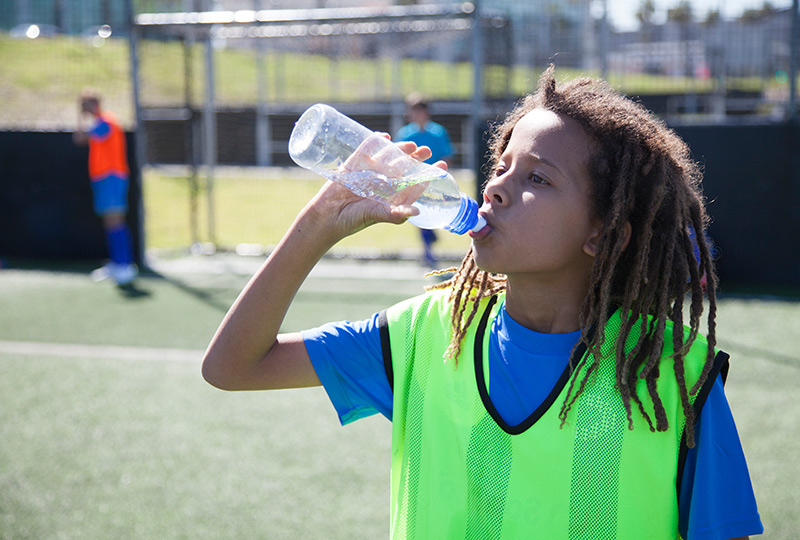The importance of hydration for athletes can’t be overstated. Make sure your athletes take in enough water.
Hydration is crucial for youth athletes. Dehydration can affect athletes after less than one hour of exercise, and puts them at greater risk for heat illnesses such as cramps, heat exhaustion and heat stroke.
Student athletes should have access to water throughout workouts, practices and games. Ask your child’s coach how much water is available during practices and whether the team takes water breaks. Encourage your child to bring a personal water bottle if necessary.
The American Academy of Pediatrics Committee on Sports Medicine recommends that young athletes take 5- to 10-minute water breaks every 30 minutes whenever the heat index reaches 82 degrees or higher. During these breaks, athletes should rest in shaded areas and remove protective equipment, such as helmets.
Encourage your athlete to eat foods that promote good hydration. Fruits and vegetables contain lots of water, so they’re essential for athletes. Salt tablets, caffeine, pickle juice, protein and nutritional supplements (unless there’s a medical reason for the nutrition supplement) are not recommended. Athletes should avoid them, and drink water instead. How much should they drink? It’s all based on your child’s size and the length of exercise, but you can use these hydration guidelines for young athletes.
Youth sports hydration guidelines
- A child weighing less than 90 pounds should drink 10 gulps of fluid (about 5 ounces) every 15 to 20 minutes.
- A child weighing more than 90 pounds, should drink 20 gulps of fluid (about 10 ounces) every 15 to 20 minutes.
Thirst is a sign that your athlete is already dehydrated. Encourage young athletes to sip water throughout the day to avoid getting thirsty.
My Southern Health offers more tips on the best nutrition for student athletes, and the best pre-game meals and snacks.
After-Hours care for your child
Vanderbilt’s Children’s After-Hours Clinics offer the convenience of a walk-in clinic with care provided by a board-certified pediatrician from Children’s Hospital. No appointment is necessary, but it’s wise to call your child’s pediatrician first.

